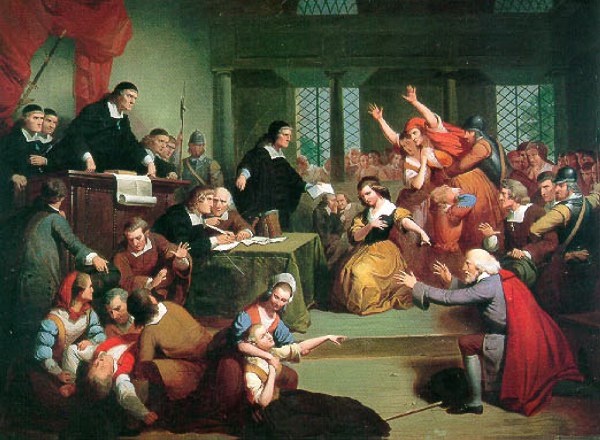Fear/Hysteria:
Fear and hysteria are majors themes in the crucible because the only reason that the witch trials were able to occur was by the fear of the people and the hysteria of the teenage girls. The fear of witchcraft in Salem rapidly spread throughout the community and thus people to escape being accused turned on their neighbors. The best example of this was with the teenage girls who were caught in the forest. They turned on the innocent and used their seeming innocence to cry and moan and exclaiming that they were forced to do what they did. The hysteria that rooted from these girls turned almost everyone in the town against each other. In the end of the novel the fear would lead to the innocent being killed for sins that they were falsely accused of.
Reputation:
Reputation is another major theme of the novel due to the effect reputation house on the outcome of certain situations. For example John Proctor wanted to keep his reputation of a good and honest man, but in order to save his wife he gave up his reputation and admitted to having an affair with Abigail. The need to keep the reputation of his wife as a moral Christian outweighed the need to keep his reputation as a moral man. Another major effect reputation had in the novel was with judge Danforth. On the day of John Proctors execution judge Danforth was begged to release Proctor; but as he needed to uphold his reputation as a judge that would uphold the law, he had to allow Proctor to be executed (This was also because Danforth had signed the death of many other men and women and could not risk his reputation).

No comments:
Post a Comment